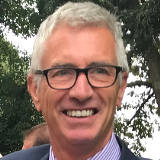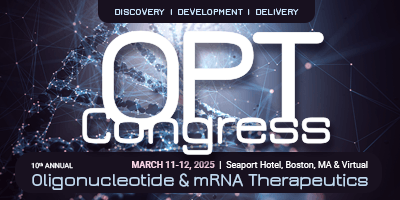2025年 コースのアジェンダ
2025年3月11日(火) 8:00 - 10:00 am
SC1: Safety & Toxicity of Nucleic Acids
SC1:核酸の安全性と毒性
Topics to be discussed include:
- Different types of nucleic acid-based drugs
- Mechanisms of actions and non-specific effects
- Current approaches to address non-specific and potentially toxic effects
- Findings secondary to class-effect of oligonucleotides
Aimed at both novice and advanced nucleic drug developers, the course will:
- Introduce and explain the differences between various types of nucleic acid drugs
- Summarize our current understanding of the origins of non-specific and potentially toxic effects
- Provide direction on how to minimize the potential toxic effects of nucleic acids drugs
- Provide an overview of DMPK considerations from a safety evaluation perspective
SHORT COURSE PRESENTATIONS:
Nonclinical Considerations for the Development of Oligonucleotide Therapeutics
Sarah Lamore, PhD, DABT, Senior Director, Toxicology, PepGen
This presentation will review some of the common toxicities associated with oligonucleotide administration, discuss the regulatory expectations for the nonclinical safety evaluation of oligonucleotide therapeutics in the context of the applicable guidance documents, and present case studies based on recently approved products.
Application of In Vitro Toxicity Assays in Preclinical Safety Assessment of Systemically and Intrathecally Administered Antisense Oligonucleotides (ASOs)
Fengjiao Zhang, PhD, Director, Toxicology, Preclinical & Clinical Discovery & Development Team, Wave Life Sciences
ADME and PK/PD Considerations for Preclinical Development of Antisense Oligonucleotides (ASOs)
Xiao Shelley Hu, PhD, President and Founder, Translational Consulting LLC
ASOs are an emerging class of medicines for unmet medical needs. The ADME and PK/PD entail specific considerations to support effective preclinical development. This talk will focus on factors relevant to preclinical development of ASOs.
Further Considerations for the Development of Complex Oligonucleotide-Based Therapeutics
Kristy Szretter, PhD, Scientific Director, Takeda Pharmaceutical
This presentation will build on the regulatory expectations for the nonclinical development of ASOs and GalNAc-siRNAs, and address the additional considerations for more complex oligonucleotide-based modalities (e.g., lipid nanoparticles, antibody-oligo conjugates, circular RNAs). Relevant guidance documents and case studies will be used to highlight the similarities and unique aspects of each nonclinical package.
INSTRUCTOR BIOGRAPHIES:
 Xiao Shelley Hu, PhD, President and Founder, Translational Consulting LLC
Xiao Shelley Hu, PhD, President and Founder, Translational Consulting LLC
 Sarah Lamore, PhD, DABT, Senior Director, Toxicology, PepGen
Sarah Lamore, PhD, DABT, Senior Director, Toxicology, PepGen
 Kristy Szretter, PhD, Scientific Director, Takeda Pharmaceutical
Kristy Szretter, PhD, Scientific Director, Takeda Pharmaceutical
 Fengjiao Zhang, PhD, DABT, Director, Toxicology, Preclinical & Clinical Discovery & Development Team, Wave Life Sciences
Fengjiao Zhang, PhD, DABT, Director, Toxicology, Preclinical & Clinical Discovery & Development Team, Wave Life Sciences
SC2: Successful Regulatory Submission for a Complex Oligonucleotide
SC2:合成のオリゴヌクレオチドの承認申請を成功させるには
Topics to be discussed include:
- The principles of a control strategy from ICH guidance and what this means in practice
- The challenges (and advantages) in applying the principles to oligonucleotides
- Where to start in early development of oligonucleotides
- How to get to a successful commercial control strategy for oligonucleotides
Benefits of attending include:
- Understand the activities required to carry out and fund in order to achieve regulatory success for a therapeutic oligonucleotide
- Understand the when to plan in relevant activities when initiating an oligonucleotide development project
- Support decision-making from early development onwards
- Support CDMO selection, development and financial planning
- Understand the regulatory challenges and how to overcome them
INSTRUCTOR BIOGRAPHIES:
 Mike Webb, PhD, Founder and CEO, Mike Webb Pharma; Former Vice President, API Chemistry & Analysis, GSK
Mike Webb, PhD, Founder and CEO, Mike Webb Pharma; Former Vice President, API Chemistry & Analysis, GSK
* 不測の事態により、事前の予告なしにプログラムが変更される場合があります。
スポンサー更新
アジェンダ・講演者・スポンサー更新










